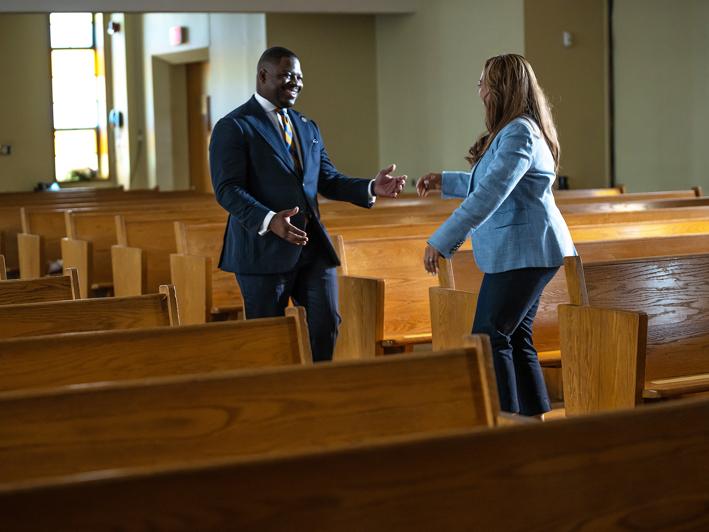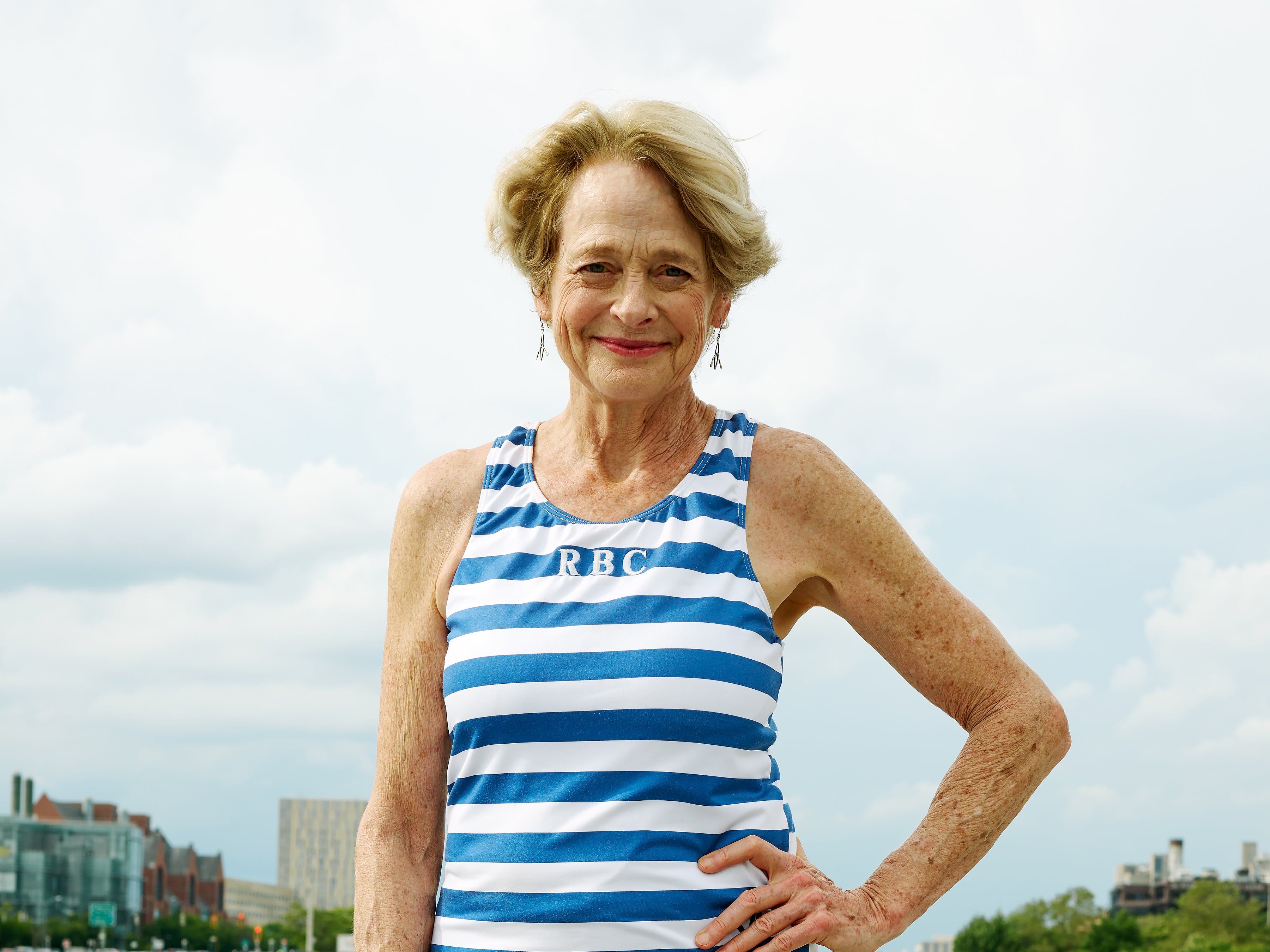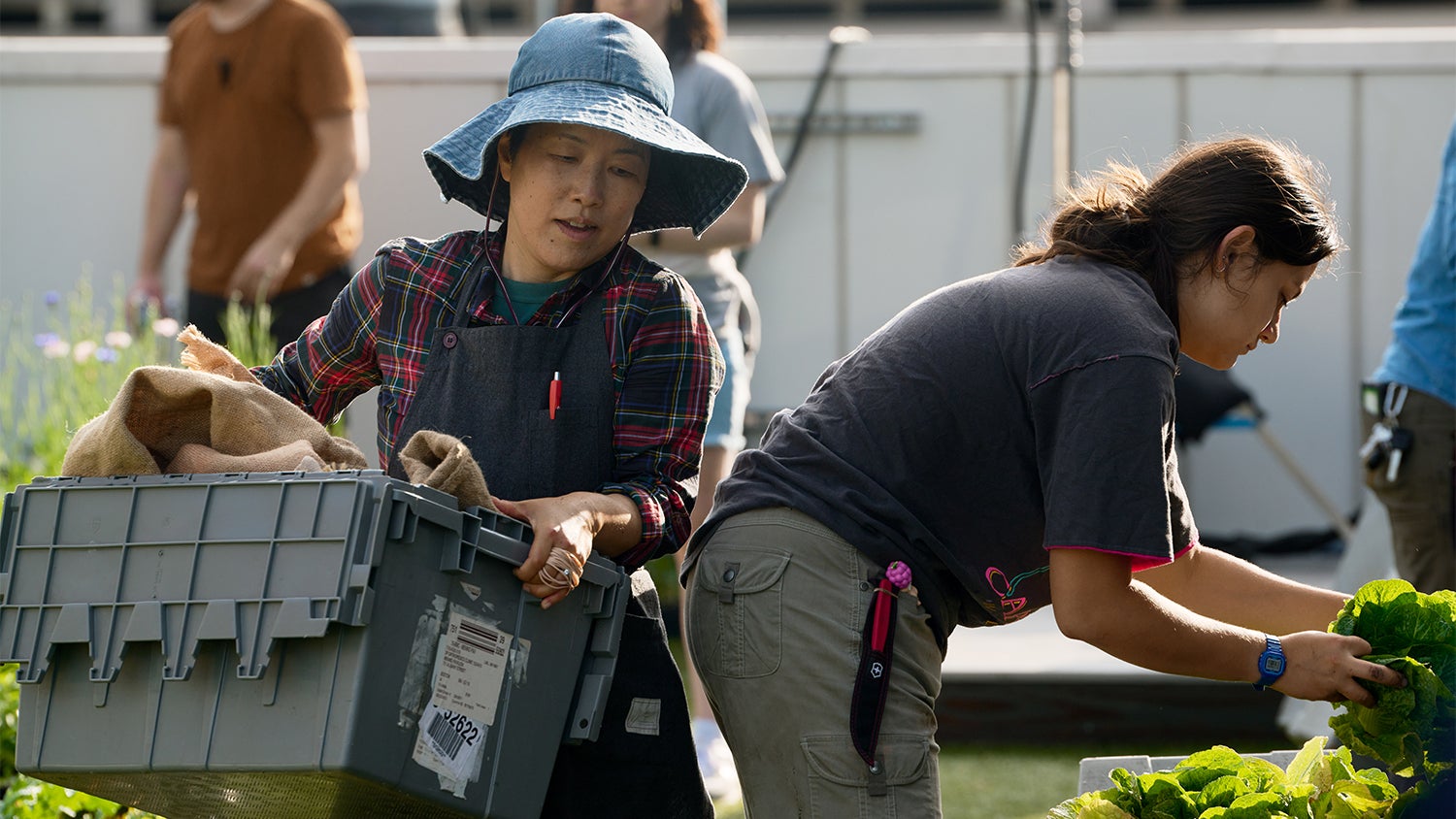
Rewriting healthcare means moving from charity to equity.
Rewriting Healthcare by Petrina Martin Cherry, MBA, vice president of community engagement and external affairs
Petrina Martin Cherry knows that building community is vital to healthcare, and she says the first step toward this goal is being a good listener. “Boston Medical Center’s mission is about improving the lives of our patients and our community,” she says. “My job is to make sure the voice of the patient and the voices of the community are heard, to create a seat at the table where no seat has existed before.”
Throughout her seven years at Boston Medical Center (BMC), Petrina has listened to patients and the community and put her learnings into action. “Rewriting healthcare means being aware of all the ways this community has been disinvested in in the past,” she shares, “and being very intentional about creating spaces for the community where access and spaces have not existed.”
Learn how Petrina is rewriting healthcare by engaging with the community and why she has never been prouder to work at BMC.

Why is it important for a hospital to engage with the community?
At BMC, we recognize no one understands a community better than the community members themselves.
One of the best examples of what can happen when a community comes together was during the COVID-19 crisis. It was really important for the community to trust us to provide access and care, and the only way to do that was to go to our trusted sources in the community. So we set up six vaccination sites in churches, community centers, and community-based organizations where trust already existed. They helped us get the access we needed to educate and provide vaccines to members of the community and, most importantly, to really listen and hear back from them on what they needed.
We heard their concerns, what their challenges had been, and what their families had gone through. That helped us build a better way of reaching out to the community. The community helped us understand how to better serve them.
Being in those spaces, supported by institutions like ours in a way that is genuine and with love and concern, was really amazing. We saw people who had been so isolated hugging each other; we saw the pastors of those faith-based institutions in corners, praying with parishioners and giving them comfort. And we saw more people receiving the vaccine.
How does BMC build trust with the community?
Trust is easily broken, so once you build trust, it has to be maintained. The way we maintain that trust at BMC is by having a constant presence in the community. So we’re not just coming in for the COVID vaccine and then leaving. We’re building opportunities to work with our community leaders, and we’re making ourselves available when organizations are hosting events, whether it’s a gala, a block party, or a back-to-school fundraiser. We want the community to know we are truly working with them hand in hand, and the more they see us, the more we’re able to build and maintain that trust.
We want the community to know we are truly working with them hand in hand.
How is BMC pushing the boundaries of community engagement?
We understand nothing can be accomplished without having the voice of the community heard at the table. Our Equity Partnership Network, Community Advisory Committee, and Youth Advisory Board inform our work. They allow us to consistently hear from stakeholders on how we should invest in their community.
We also know that building community is vital to healthcare. We see that our patients trust us more when they have a healthcare crisis if they’ve seen us in the community and have relationships with us. Their health is not always the most important concern for them and their families. So when they see us helping them with other issues, whether it is food insecurity or housing, or when they see us in the community supporting Black businesses, there’s a level of trust that exists when they need us for health issues.
What is BMC to you?
BMC is learning to look internally at ourselves, figure out what’s broken, fix it, and do better for a community and patients who deserve something better.
BMC is building community and creating a transformational space where our younger generations can thrive.
BMC is a place where clinicians are committed to looking at the whole patient.
What does “rewriting healthcare” mean to you?
Rewriting healthcare means listening to patients and community with love and care, and putting what we learn into action.
How is BMC rewriting healthcare?
To me, rewriting healthcare means listening to patients and the community with love and care and putting what we learn into action. As a leader that embodies the voice and the needs of the community, BMC is working with our community partners hand in hand, making sure that we get it right for the people of Boston so that generations to come are changed.
We have a commitment to making sure that the Boston you see 10 years from now, 20 years from now, is more inclusive and more open, with opportunities for young people that don’t exist today.
 en
en 




 Français
Français Deutsch
Deutsch Italiano
Italiano Español
Español Tiếng Việt
Tiếng Việt Kreyol ayisyen
Kreyol ayisyen